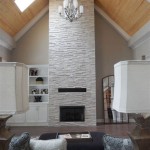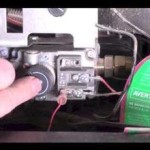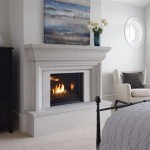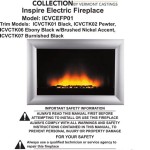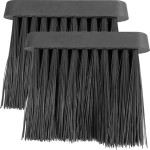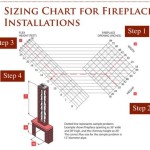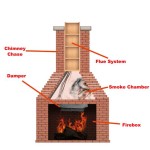How Energy Efficient Are Electric Fireplace Heaters?
The question of energy efficiency is a significant concern for consumers considering various heating options for their homes. Electric fireplace heaters have emerged as a popular alternative to traditional gas or wood-burning fireplaces, offering visual appeal and supplemental heat. Understanding the energy efficiency of these appliances is crucial for making informed decisions regarding home heating costs and environmental impact.
Electric fireplace heaters operate by converting electrical energy into heat. A heating element, typically a coil or ceramic plate, warms up and a fan distributes the generated heat into the room. The efficiency of this process hinges on how much of the electrical energy consumed is actually converted into usable heat, and how effectively that heat is distributed and retained within the desired space.
Understanding the Basics of Energy Efficiency in Electric Fireplace Heaters
Energy efficiency, in its simplest form, is a measure of how effectively a device converts energy input into useful output. In the context of electric fireplace heaters, this translates to the ratio of electrical energy consumed to the amount of heat produced. A highly efficient heater will convert a larger percentage of the electricity it uses into heat, minimizing energy waste. Several factors influence this efficiency, including the type of heating element used, the insulation of the unit, and the presence of features like thermostats and timers.
The primary advantage of electric fireplace heaters in terms of efficiency is their near 100% conversion rate of electricity to heat. Unlike combustion-based heating systems, such as gas or wood-burning fireplaces, electric fireplaces do not lose energy through venting exhaust gases. All the electrical energy consumed is theoretically converted into heat that is released into the room. However, this doesn't necessarily mean they are the most cost-effective option in all situations. The overall cost of heating with an electric fireplace depends heavily on the local electricity rates.
Electric fireplace heaters are often used as supplemental heating sources, targeting specific areas of a home rather than heating the entire dwelling. This localized heating approach can be considerably more efficient than running a central heating system for the whole house when only one or two rooms need to be warmed. By concentrating heat where it's needed most, energy waste is minimized.
The size of the room significantly impacts the perceived efficiency. An electric fireplace heater designed for a small room will be inefficient if used in a large, open-concept space. It will continuously operate at its maximum capacity, consuming more energy without effectively raising the temperature to a comfortable level. Choosing an appropriately sized unit for the intended space is vital for optimal efficiency.
Factors Affecting the Energy Efficiency of Electric Fireplace Heaters
While electric fireplaces boast near 100% conversion efficiency, several operational and design aspects influence their overall energy performance and cost-effectiveness. A detailed examination of these elements is essential for understanding the true energy impact of using these heaters.
Thermostats play a critical role in regulating energy consumption. A thermostat allows the heater to maintain a desired temperature by cycling on and off, preventing it from running continuously at full power. Models with programmable thermostats offer even greater control, allowing users to set specific heating schedules to match their routines. This feature helps avoid unnecessary heating when the room is unoccupied or during periods when lower temperatures are acceptable.
The type of heating element used within the electric fireplace can affect its efficiency. Some models utilize infrared heating, which directly warms objects and people in the room rather than heating the air. This can create a more comfortable and efficient heating experience, as the warmth is felt more quickly and lasts longer. Other models use traditional heating coils, which heat the air that is then circulated by a fan.
Insulation levels in the room where the electric fireplace is used significantly impact its effectiveness. Poorly insulated rooms will lose heat more quickly, forcing the heater to work harder and consume more energy to maintain the desired temperature. Sealing drafts around windows and doors, and ensuring adequate wall and ceiling insulation, can dramatically improve the energy efficiency of any heating system, including electric fireplaces.
The fan used to circulate heat also contributes to energy consumption. While the fan is necessary to distribute the heat evenly throughout the room, it draws power and adds to the overall energy usage. Some models feature adjustable fan speeds, allowing users to optimize the airflow and minimize energy consumption. Choosing a model with an efficient fan motor can also make a difference.
Some electric fireplace heaters include features like timers and sleep modes. Timers allow users to set the heater to automatically turn off after a specified period, preventing it from running all night or when the room is empty. Sleep modes gradually reduce the heat output over time, maintaining a comfortable temperature while minimizing energy consumption during sleep. These features can significantly reduce the overall energy usage of the heater.
Comparing Electric Fireplace Heaters to Other Heating Options
To gain a comprehensive understanding of the energy efficiency of electric fireplace heaters, it's crucial to compare them to other commonly used heating methods. This comparison should consider both the conversion efficiency of the heating system and the overall cost of operation, taking into account factors such as fuel prices and usage patterns.
Compared to traditional wood-burning fireplaces, electric fireplace heaters offer a significant advantage in terms of efficiency. Wood-burning fireplaces lose a substantial amount of heat through the chimney, with some studies estimating that as much as 90% of the heat generated escapes. Electric fireplaces, on the other hand, keep all the heat within the room, making them a much more efficient heating option. However, the cost of electricity versus the cost of wood needs to be considered.
Gas fireplaces typically have a higher efficiency rating than wood-burning fireplaces, but they still lose some heat through venting. The efficiency of a gas fireplace depends on whether it is a vented or ventless model. Ventless gas fireplaces are more efficient but can raise concerns about indoor air quality. Electric fireplaces avoid these concerns while offering comparable or better efficiency. Consider the cost of natural gas or propane compared to the cost of electricity.
Compared to central heating systems, electric fireplace heaters can be more or less efficient depending on the usage pattern. If only one or two rooms need to be heated, using an electric fireplace as a supplemental heating source can be more efficient than running the entire central heating system. However, if the entire house needs to be heated, a central heating system is generally more efficient and cost-effective. Central heating systems are designed to distribute heat evenly throughout the house, while electric fireplaces are best suited for localized heating.
Portable electric space heaters, including electric fireplace heaters, can be a convenient and efficient way to heat small areas. However, it's important to choose the right type of space heater for the intended purpose. Some space heaters are more energy-efficient than others. Consider the wattage of the heater and its ability to effectively heat the desired space. Look for models with thermostats and timers to further optimize energy consumption.
Heat pumps offer a potentially more energy-efficient alternative to electric resistance heating. Heat pumps transfer heat rather than generating it, making them significantly more efficient. However, heat pumps may not be as effective in extremely cold climates. The upfront cost of installing a heat pump can also be higher than purchasing an electric fireplace heater.
Ultimately, the choice of heating system depends on a variety of factors, including the size of the space to be heated, the local climate, the cost of fuel or electricity, and personal preferences. Understanding the energy efficiency characteristics of different heating options is essential for making an informed decision that balances cost, comfort, and environmental impact.

How Energy Efficient Are Electric Fireplaces Rochesterfirst

Is An Electric Fireplace Better Than Central Heating The Studio

Lifeplus Small Electric Fireplace Heater Tabletop 13 5 Energy Efficient Indoor Space Portable Wood Cabinet 3d Flame For Home Decor Com

Electric Fireplace Stove 23 Inches Freestanding Infrared He Grillpartsreplacement Bbq Parts Retailer

Energy Saving Small Good Quality Decorative Electric Fireplace China Heater Made In Com

Lifeplus Small Electric Fireplace Heater Tabletop 13 5 Energy Efficient Indoor Space Portable Wood Cabinet 3d Flame For Home Decor Com

Modern Furniture Energy Saving Led Flame Smart 3d Artificial Fire Home Electric Heater Fireplace China Tv Stand Made In Com

23 Electric Fireplace Insert Recessed Heater Bestoutdor

How Energy Efficient Are Electric Fireplaces Rochesterfirst

Electric Fireplace Heater Led Energy Saving Technology 3d Flame Effect With Over Heating Protection Portable Space Freestanding For Home Office Indoor Use 14 1400w Shein Usa

